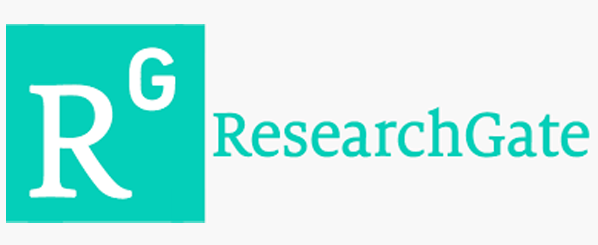Cardiac Arrest Reported During First Cycle of High Dose Cisplatin Intravenous Infusion at a Tertiary Care Hospital Karachi, Pakistan
Arifa Aziz1*, Yasmin Abdul Rashid2 and Iffat Shehzad3
1Staff Medical Officer, Supervisor at Day care Oncology, Department of Oncology, Aga Khan University Hospital, Pakistan
2Assistant Professor, Medical Oncologist, Residency Program Director, Department of Oncology, Aga Khan University Hospital, Pakistan
3Medical Officer, Day Care Oncology, Department of Oncology, Aga Khan University Hospital, Pakistan
*Corresponding author
Arifa Aziz, Staff Medical Officer, Supervisor at Day care Oncology, Department of Oncology, Aga Khan University Hospital, Pakistan.
ABSTRACT
Rationale: Cardiac toxicity with cisplatin is not common, therefore the cardiac evaluation and investigations are not performed routinely before giving high dose cisplatin unless there are risk factors. After this incident of cardiac arrest there is a need to be more vigilant.
Patients History: 48 years old male diagnosed case of squamous cell carcinoma tongue was electively admitted for the infusion of chemotherapeutic drug high dose Cisplatin (100 mg/m2) at daycare oncology.
The patient in this case had no previous history of high blood pressure, high cholesterol level, cardiac problem, chest pain or chest discomfort. There is no prior history of hypertension, dyslipidemia, any cardiac anomaly, chest pain or discomfort. He also denied any history of addiction including any form of tobacco or alcohol.
All baseline investigations, including complete blood count, Liver function test, serum creatinine, 24 hours ‘urine for creatinine clearance, serum electrolytes, hepatitis B and C were normal. Tissue biopsy, CT scan and ECHO prior to treatment was normal.
Patients, as per instruction of primary physician has to receive cisplatin 100mg /m2 concurrent with radiation therapy.
Result: Patient suddenly became unconscious in washroom after receiving 50% of cisplatin infusion, as per chemotherapy protocol patient must receive potassium and magnesium in infusion over three hours as per standard guidelines, patient remains well after receiving this electrolytes infusion. After giving pre-chemotherapy which included injection Ondansetron 8 mg. Injection dexamethasone 12 mg and tablet aprepitant 125 mg and capsule esomeprazole 40 mg and after giving pre-chemotherapy injection cisplatin 100 mg/m2 intravenous started infusion duration was over one hour after half an hour of infusion patient wants to go for passing urine and went with attendant to wash room, he suddenly becomes unresponsive, this event was identified by attendant when patient not came back from washroom who was standing near door. Despite multiple cycles of CPR, the patient could not be revived and remained in asystole. Death was declared to the family members after 45 minutes.
Keywords: Cardiac Arrest, Arrythmias, Cisplatin, Thrombus
Introduction
Cisplatin is a very potent drug in squamous cell carcinomas. The major adverse events of cisplatin include nephrotoxicity, neurotoxicity, ototoxicity, and gastrointestinal toxicities theses side effects are seen if dose is more than 50 mg/m2, cisplatin-induced cardiotoxicity is rare cardiotoxicity occurs in 6% of the patient’s receiving cisplatin [1,2]. Cisplatin or cis-diamminedichloroplatinum (CDDP) is a platinum-based chemotherapy used to treat sarcomas, some carcinomas which includes small cell lung cancer, ovarian cancer, lymphomas, and germ cell tumors.
It is excreted in urine although some amount of platinum can be present in bile and large intestine after administration of cisplatin.
Few plans have been advised to prevent and treat cisplatin-induced cardiotoxicity effectively. Firstly, we monitored the echocardiography and ECG of the patient before and during the therapy. Secondly, we stopped the usage of cisplatin at a relatively early stage. Thirdly, we used coenzyme Q10 and trimetazidine to prevent the cardiac function from deterioration, based on potential pathophysiological mechanisms of cisplatin-induced cardiotoxicity [3,4]. Our experience might provide an example for time management for the use of medications for cardio protection following cisplatin-induced cardiotoxicity, Along with its common side effects it has some rare side effects like irregular heartbeat, thrombus formation and heart attack that can be one of the reasons of sudden death.
Cardiac toxicity percentage is less therefore very few patients reported and the mechanisms of cisplatin-induced cardiotoxicity remain unclear [5,6]. The patients with cervical cancer developed thrombus after receiving cisplatin [7]. Cisplatin activates the transmembrane protein kinase RNA (PKR)-like ER kinase (PERK) signalling pathway, phosphorylates IF2a, activates caspase, promotes the formation of apoptozole, and induces apoptosis of the cardiomyocytes [8,9]. Cisplatin activates the transmembrane protein kinase RNA (PKR)-like ER kinase (PERK) signaling pathway, phosphorylates IF2a, activates caspase, promotes the formation of apoptosome, and induces apoptosis of cardiomyocytes [1,10]. Furthermore, cisplatin combines with histone-lacking mitochondrial DNA (mtDNA) to form various complexes disabling the nucleotide excision repair pathways that can remove such complexes [1,10]. As a result, myocardial mtDNA is impaired, and mitochondria are unable to produce adenosine triphosphate. Cardiomyocytes suffer from dysfunction and subsequently hypoxic necrosis resulting in cardiotoxicity [2].
Cardiotoxicity has rarely been reported in patients receiving cisplatin. Only 4 cases reported from January 1, 1980, through April 1, 2017, cisplatin-induced cardiotoxicity, and reduced ejection fraction [2].
Discussion
48 years old male known case of Hypertension, Hypothyroidism, Medullary thyroid carcinoma diagnosed in 2013, Total thyroidectomy and bilateral neck dissection done, now presented with left side of tongue lesion for 4-6 months. CT scan head and neck showed left side of tongue enhancing lesion measuring approximately 36 x 30.5 x 26 m in AP, transverse and craniocaudal dimension. Posteriorly the lesion is extending into the root of the tongue.
His biopsy showed well differentiated keratinizing Squamous cell carcinoma tongue. He underwent Total glossectomy and neck dissection post diagnosis. All initial labs were done including complete blood count, Liver function test, Renal function test, 24hours creatinine clearance, serum electrolytes, hepatitis B and C, Tissue biopsy, CT scan and ECHO was also normal. He was planned to receive radiation and cisplatin (CDDP). He was electively admitted to day care oncology for chemotherapy after receiving radiation. The patient was assessed by a physician before starting chemotherapy. The patient was vitally and hemodynamically stable and adjuvant concurrent chemo-radiation therapy was started. He received an infusion including injection potassium 32 meq and injection magnesium 16 meq diluted in 500 cc normal saline this infusion is given over 3 hours as a part of standard protocol. Hydration with normal saline also given after receiving electrolyte infusion and blood pressure checked pre and post infusion was normal, he received pre-chemotherapy included injection ondansetron 8 mg intravenous, injection dexamethasone 12 mg intravenous, tablet aprepitant 125 mg PO and capsule Esomeprazole 40 mg PO. Blood pressure, heart rate and oxygen saturation again checked before starting cisplatin and were normal. After receiving 50% dose of cisplatin he went to washroom under supervision where he collapsed. After identification of incident CPR was started immediately and rapid resuscitation team was taken on board and shifted to emergency department Despite multiple cycles of CPR he could not be revived, and Death was confirmed, and expiry was declared to the family.
Along with its common side effects cisplatin has some rare side effects like irregular heartbeat, thrombus formation and heart attack that could be one of the reasons of sudden death.
Informed consent has been obtained from the patient before starting chemotherapy.
The authors have no conflicts of interest to declare.
Conclusion
Cardiac toxicity caused by cisplatin resulting in sudden death is rare but after this incident now it’s extremely important to evaluate cardiac fitness before giving cisplatin.
Way Forward: All patients admitted for Cisplatin should have prior cardiac evaluation.
References
- Jakubowski AA, Kemeny N. Hypotension as a manifestation of cardiotoxicity in three patients receiving cisplatin and 5-fluorouracil. Cancer. 1988. 62: 266-269.
- Labianca R, Beretta G, Clerici M, Fraschini P, Luporini G. Cardiac toxicity of 5-fluorouracil: a study on 1083 patients. Tumori Journal. 1982. 68: 505-510.
- Cheriparambil KM, Vasireddy H, Kuruvilla A, Gambarin B, Makan M, et al. Acute reversible cardiomyopathy and thromboembolism after cisplatin and 5-fluorouracil chemotherapy–a case report. Angiology. 2000. 51: 873-878.
- 10-Martin M, Diaz-Rubio E, Furio V, Blázquez J, Almenarez J, et al. Lethal cardiac toxicity after cisplatin and 5-fluorouracil chemotherapy. Report of a case with necropsy study. Am J Clin Oncol. 1989. 12: 229-234.
- Ponikowski P, Voors AA, Anker SD, Bueno H, Cleland JGF, et al. 2016 ESC guidelines for the diagnosis and treatment of acute and chronic heart failure. Rev Esp Cardiol. 2016. 69: 1167.
- Edwards IR, Aronson JK. Adverse drug reactions: definitions, diagnosis, and management. Lancet. 2000. 356: 1255-1259.
- Fukuhara H, Yagi M, Ando K, Tomita Y. Long-term administration of single-agent carboplatin (AUC 4) for advanced testicular seminoma safely achieved complete response in an 80-year-old man with chronic heart failure: a case report. Can Urol Assoc J. 2014. 8: 931-933.
- Ma H, Jones KR, Guo R, Xu P, Shen Y, et al. Cisplatin compromises myocardial contractile function and mitochondrial ultrastructure: role of endoplasmic reticulum stress. Clin Exp Pharmacol Physio. 2010. 37: 460-465.
- Jamieson ER, Lippard SJ. Structure, recognition, and processing of cisplatin-DNA adducts. Chem Rev. 1999. 99: 2467-2498.
- Fotino AD, Thompson-Paul AM, Bazzano LA. Effect of coenzyme Q (1) (0) supplementation on heart failure: a meta-analysis. Am J Clin Nutr. 2013. 97: 268-275.












